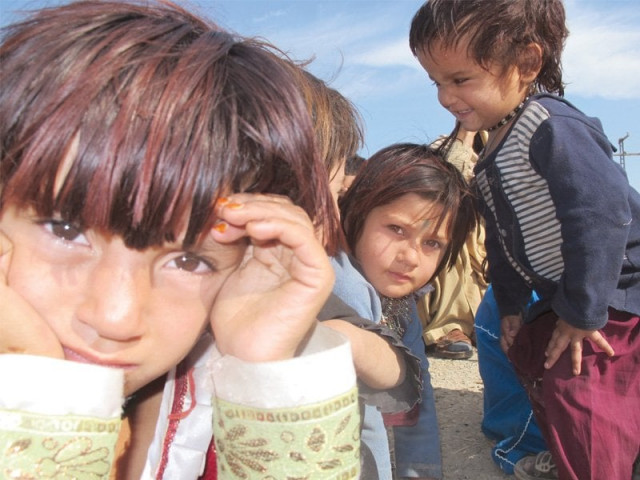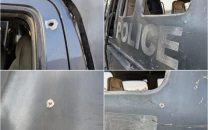Street children’s dilemmas: The joyless tale of a runaway wanderer
Rizwan, 7, lost his way and ended up in the hands of exploiters in Punjab.

Rizwan, 7, lost his way and ended up in the hands of exploiters in Punjab. PHOTO COURTESY: ADNAN BHITTANI
What transpired at the rally, Razia knew not. All she knew was that her son Rizwan was missing since he went there. The 7-year-old boy’s departure to slain former premier Benazir Bhutto’s chehlum in 2008 was the last Razia heard of him for five years.
“He went there with the villagers and never returned back to me,” wept the Tando Muhammad Khan housemaid.
Razia hoped, prayed and flitted from place to place in anguish looking for her son. She searched the Edhi homes, police stations and neighbouring villages but to no avail. In the end, the woebegone mother gathered her wits, and with a heavy heart resigned herself at home to attend to her other children.
Losing path
The hot, dusty roads of Larkana led to the open grounds of Garhi Khuda Bux where the assassinated leader’s chehlum was being held. Rizwan beheld the surroundings agape, and somehow got swept in the mob’s midst.
Young as he was, the child had little sense of direction. Somehow, steered by men and curiosity, he was carried north till he reached the lip of Punjab. This fateful travel was to define the next five years of Rizwan’s life.
“I tilled land, shepherded cattle, served in restaurants and took up several menial jobs,” says Rizwan who has forgotten his mother tongue, Sindhi, and speaks only the Seraiki language.
He remembers how the lack of a guardian exposed him to beatings and drudgery exacted by employers, which scared the daylights out of him. “I missed my mother whenever I was subjected to ill-treatment.”
However, Rizwan was visibly reluctant to share the more gruesome afflictions he went through in his travels to Multan, Dera Ghazi Khan, Rajanpur and Bahawalpur. “I gradually became addicted to gutka, cigarettes, alcohol and other drugs,” he says regretfully. But buried within his bosom are stories of other torments which have marred his psychological state.

Enter: the good fairy
Tired of the toil and abuse he suffered since leaving home, a few months ago, Rizwan took shelter in the Punjab government’s Child Protection and Welfare Bureau (CPWB) in Multan. It was there that one Syed Aijaz Hyder discussed his case with The Society for Protection of the Rights of Children (SPARC)’s National Manager Kashif Bajeer. The two men arranged for Razia to be brought to their Multan office to reunite with her son, and then provided for their travel back to Sindh - a process which took as long as three months.
Shafique Kandhro of SPARC said that society personnel were providing psychological counselling to help the boy recover from his “troubled condition”. “His drug addiction and depression, not to mention (sexual) perversion, is what the psychologist is dealing with.”
According to Bajeer, there are countless runaway children across the country who are being exploited for cheap labour, sexual abuse and drug trade. “Apart from Punjab where initiatives have been taken recently to provide shelter and counselling to such children, the rest of the country is a haven for abusers.”
After the 18th constitutional amendment, each province was supposed to establish child protection and welfare bureaus for the counselling, education, shelter and rehabilitation of street children. However, Bajeer lamented that Sindh, Balochistan and Khyber-Pakhtunkhwa have taken no step in ensuring the protection of runaway children. “We have noticed the usefulness of child protection bureaus in Rizwan’s case,” he says.
Published in The Express Tribune, January 5th, 2013.



















COMMENTS
Comments are moderated and generally will be posted if they are on-topic and not abusive.
For more information, please see our Comments FAQ